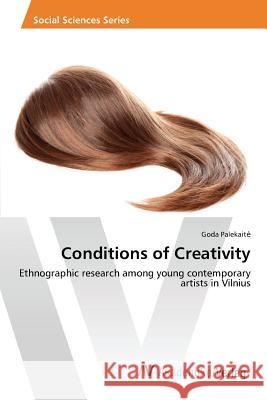Conditions of Creativity » książka
Conditions of Creativity
ISBN-13: 9783639865189 / Angielski / Miękka / 2015 / 112 str.
This ethnographic research inquires about the conditions of creativity among young contemporary visual artists in Vilnius and searches for their creative method. These artists had to witness the crash of communism and the rapid emergence of wild capitalism within the same urban landscape. The skeleton of the former USSR and the memory of censorship is still deeply embedded. It inspires the critical and rebellious thought of the young generation; consequently, they willingly reflect on the socio-history of the city through their art works. On the other hand, the general skepticism towards everything that is being culturally produced is a norm. Seeing themselves as contemporary artists, these people are not bound to disciplines but rather approach the field interdisciplinarily with theoretical, conceptual and perceptual concerns. The text draws portraits of artists moving within their environment - intimate pictures of persons and of the city. Theoretically, the central gateway is phenomenology, a philosophy that accounts for time, space and lived experience and thinks the world without subject and object. The ethnographic fieldwork was conducted from February to April, 2014.
This ethnographic research inquires about the conditions of creativity among young contemporary visual artists in Vilnius and searches for their creative method. These artists had to witness the crash of communism and the rapid emergence of wild capitalism within the same urban landscape. The skeleton of the former USSR and the memory of censorship is still deeply embedded. It inspires the critical and rebellious thought of the young generation; consequently, they willingly reflect on the socio-history of the city through their art works. On the other hand, the general skepticism towards everything that is being culturally produced is a norm. Seeing themselves as contemporary artists, these people are not bound to disciplines but rather approach the field interdisciplinarily with theoretical, conceptual and perceptual concerns. The text draws portraits of artists moving within their environment - intimate pictures of persons and of the city. Theoretically, the central gateway is phenomenology, a philosophy that accounts for time, space and lived experience and thinks the world without subject and object. The ethnographic fieldwork was conducted from February to April, 2014.











